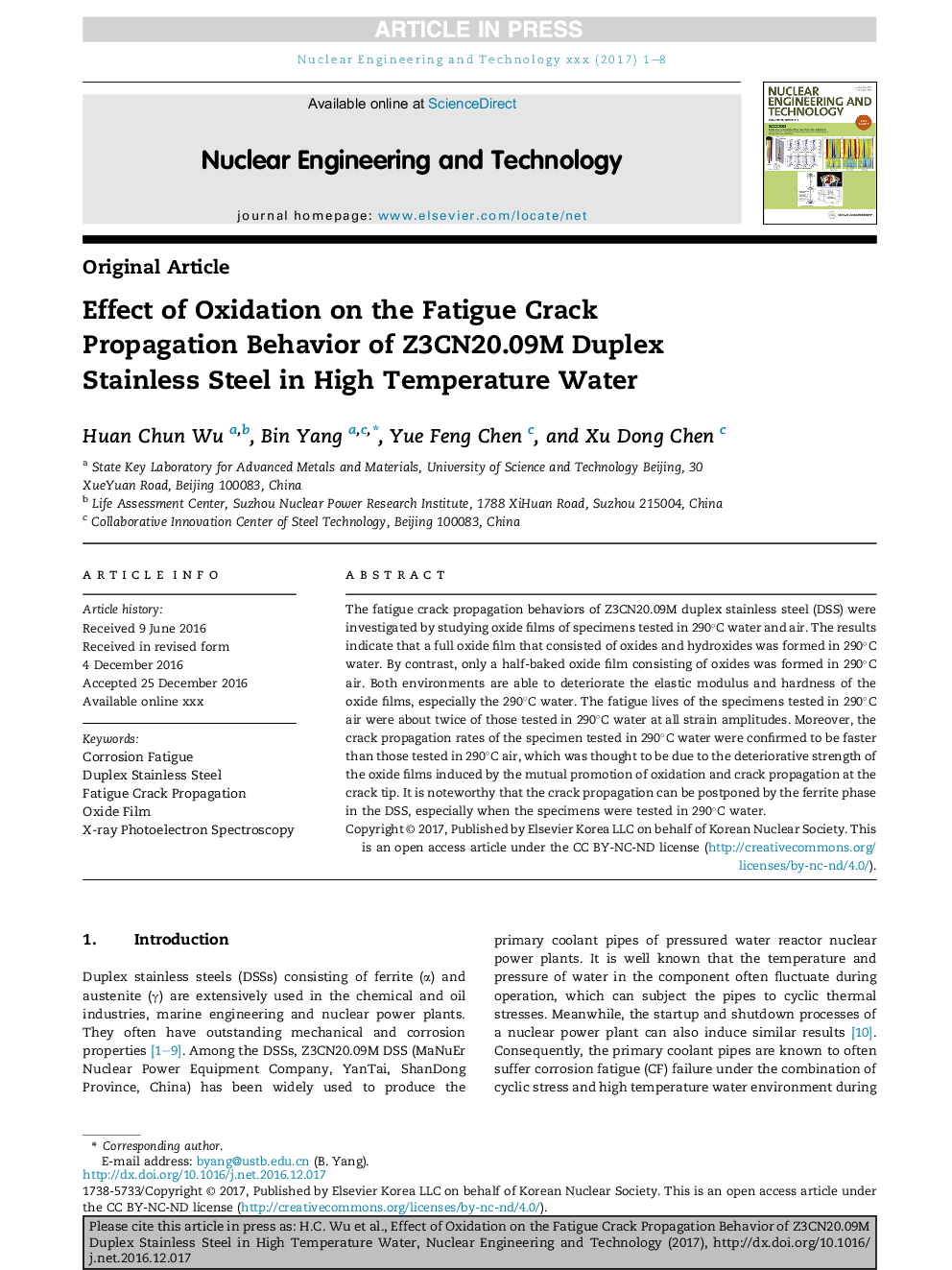| Article ID | Journal | Published Year | Pages | File Type |
|---|---|---|---|---|
| 5477952 | Nuclear Engineering and Technology | 2017 | 8 Pages |
Abstract
The fatigue crack propagation behaviors of Z3CN20.09M duplex stainless steel (DSS) were investigated by studying oxide films of specimens tested in 290°C water and air. The results indicate that a full oxide film that consisted of oxides and hydroxides was formed in 290°C water. By contrast, only a half-baked oxide film consisting of oxides was formed in 290°C air. Both environments are able to deteriorate the elastic modulus and hardness of the oxide films, especially the 290°C water. The fatigue lives of the specimens tested in 290°C air were about twice of those tested in 290°C water at all strain amplitudes. Moreover, the crack propagation rates of the specimen tested in 290°C water were confirmed to be faster than those tested in 290°C air, which was thought to be due to the deteriorative strength of the oxide films induced by the mutual promotion of oxidation and crack propagation at the crack tip. It is noteworthy that the crack propagation can be postponed by the ferrite phase in the DSS, especially when the specimens were tested in 290°C water.
Keywords
Related Topics
Physical Sciences and Engineering
Energy
Nuclear Energy and Engineering
Authors
Huan Chun Wu, Bin Yang, Yue Feng Chen, Xu Dong Chen,
